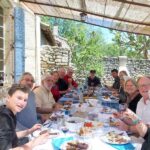We are in our 5th year of living in the Dominican Republic with our two babies that were born here, on this beautiful island. I know, immediately you think we live the life of tropical dreams: kids with messy, salt-water hair that knew how to surf before they knew how to crawl, coconuts for snacks, and piña colada happy hours.
While some days absolutely look like this, it hasn’t all been easy. Parenting never is. Parenting abroad is even trickier.
Living in the Dominican Republic
With that being said, there has been a lot we’ve learned from living abroad and, specifically, a lot that our kids have learned as a result from living in DR, all by the tender age of 4.
Learn more about the Dominican – Buy Dominican Republic – History, Culture and Politics on Amazon.
The world is their playground
When you’re living in the Dominican Republic where there is no need to check the weather because the forecast is sunny and sunnier, there isn’t much inside time.
We spend our days at the playground or the pool or the beach or our courtyard or the basketball court or… well, you get it – and because of that, our kids live their lives outside, endlessly playing in a continual summer.
They live most of their waking hours exploring the outside world and it’s fabulous.
They Learn How to talk to everyone
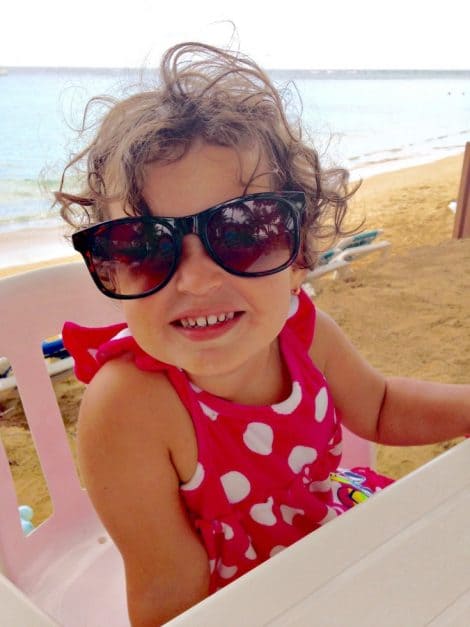

Dominicans are a social culture.
People hang outside and talk with their neighbours. Strangers chat in line at the supermarket. A gas attendant once stood next to my car window the entire fill-up time to ask me about one of my dogs in the passenger seat.
I wasn’t even sure one could talk that much about a dog to a stranger.
This isn’t a culture that shies away from interaction so when my daughter strikes up a conversation with a guard at the U.S. embassy I’m not all that surprised.
My kids have learned that communication is an essential skill for connecting with others and they are outgoingly fabulous because of it.
- * tiguere is Dominican slang for a hustler or street smart guy.
- * colmado is a corner store, like a bodega, that is found everywhere in DR.
What Living in the Dominican has taught my Children
Living in the Dominican Republic has also taught them to see everyone as the same.
They say hi to the Haitians working construction or the nanny with the umbrella walking in the opposite direction of us on the sidewalk or the businessman they pass in the mall- to them, there is no difference.
Manners, simple hellos and thank yous, are not reserved for the affluent families that they see every day at my husband’s school; they are for everyone they come in contact with. L
iving in Santo Domingo has shown them to accept people of all places and levels and statuses.
You can buy COCONUTS in the supermarket but why when they grow on trees?
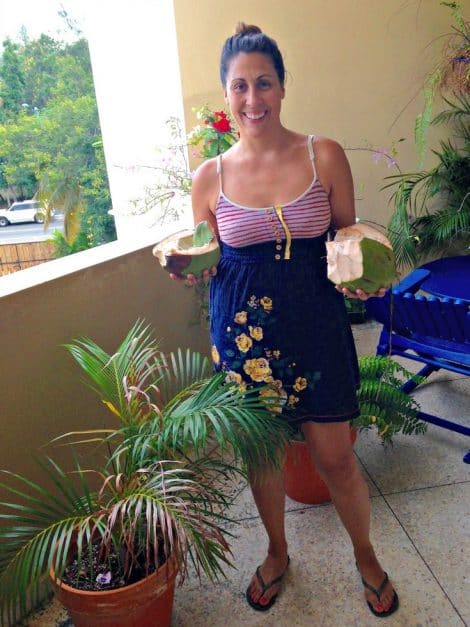

I can’t think of a time when I was a kid that I just found a random apple tree whose apple I could eat unless it was autumn and we went apple picking at an orchard. Not the case here.
We have our complex, several coconut trees, a Guayaba tree, a banana tree, and a mango tree. All with pick-able, eat-able fruit.
Check out: Why I travel for food and show should you!
Living in the Dominican Republic, kids (and pregnant women) are mini-gods, like cows in India but in human form.
People stop their cars and let you cross the street when you’re pregnant. They let you cut lines in the bank and grocery store. And kids have the same right of way.
Our kids get gushed over by older Dominican grandmas, 20-something-year-old skater boys, middle-aged Domino players, young mothers, or Catholic nuns alike.
Learn how to be kids
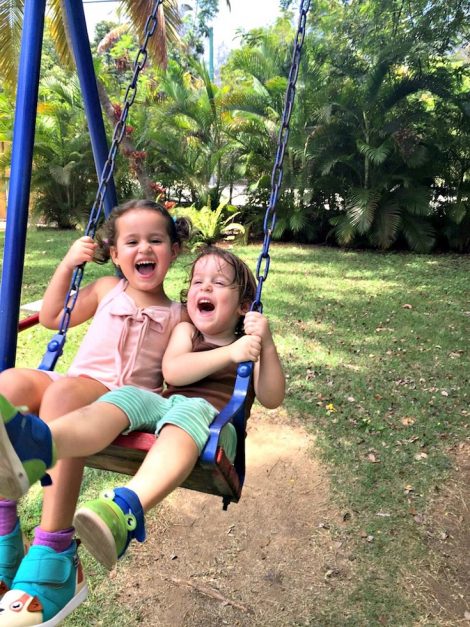

If they’re running or making noise, no one looks at them and rolls their eyes.
They don’t look at us either and wonder why our kids are acting like kids. This is a culture that loves kids, that embraces children and it shows in mine.
They are fearless in public, assuming that people will love them… and people do.
You say Hola, and I say goodbye
It was never a doubt that I wanted my kids to be bilingual.
As the first-generation Cuban -American of my family, I wasn’t always confident in my second language of Spanish but I knew how important being bilingual was… and is.
I made the decision to only speak to them in Spanish before they were born; living in the Dominican Republic has made it easier, and since my husband works at an English school, learning both languages has been natural.
Getting to watch them navigate between the two languages is – to put it lightly – freaking awesome.
They know who to thank in English and who to give gracias to in Spanish and they don’t bat an eye-switching between the two. P-r-etty cool. Now, they’re working on mastering Spanglish.
Enjoy: 11 Fun and Not so Obvious Things to do in Cuba
You don’t need a reason to celebrate
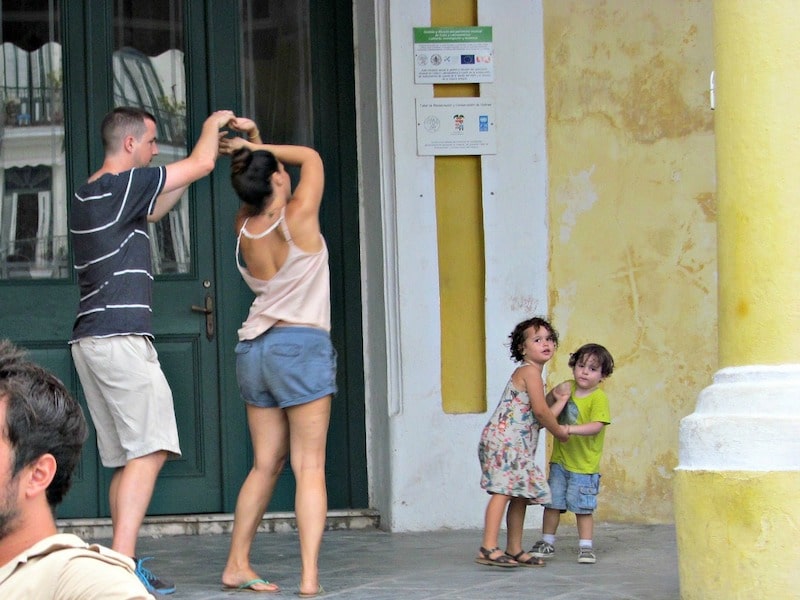

It’s Friday afternoon so we have friends over with their kids. People bring snacks, we order beers from the colmado*, we play some YouTube playlist and it’s a party.
We do the same thing Saturday mornings for brunch or on Sundays afternoons… or on Monday because it’s the beginning of the week.
It doesn’t have to be someone’s birthday or a special occasion to have a good time with friends here.
Dominicans love getting together; they love music (the louder, the better) and rum drinks and laughter.
There is no “right” reason to celebrate when everything is a reason to celebrate. Life is one big party if you keep dancing.
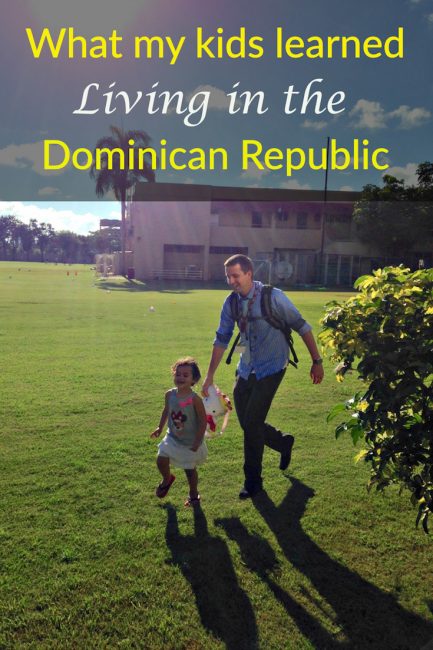

Read More:
How Travel Helped Us Live a Full Life
How I Started Living Life for Myself
In Search of Living an Enriched Life

